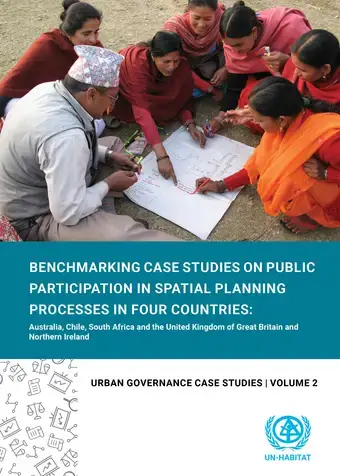What is Urban Law?
Urban law is the collection of policies, laws, decisions, and practices that govern the management and development of the urban environment. Legal systems are among the major impediments preventing innovative mayors and urban managers from creating reforms and overcoming the pressing challenges of their cities and urban systems. Many cities are burdened by laws that do not match the prevailing urban reality. Worse still, the capacity to enforce laws and regulations that are already in place is often lacking. Municipal authorities often have limited access to specialist legislative expertise, and struggle to respond to these situations. The multiplicity and rigidity of laws and regulations compel citizens to pursue informal routes to conduct land and property transactions, to do business, to acquire means of a livelihood, and even to access basic services. As a result, parallel systems flourish and Urban Legal informality becomes the norm.
The Challenge
The impact of legislation is important: it can set meaningful frameworks for sustainable development or accentuate inequalities and exclusion. The multiplicity and rigidity of laws and regulations compel citizens to pursue informal routes in areas such as land and property transactions, so urban legal informality becomes the norm. Practical legal interventions are needed to create robust, fair and effective legal instruments for a stable and predictable framework and to guarantee the inclusion of the interests of vulnerable groups, while also providing a catalyst for local and national discourse.
UN-Habitat’s Work on Urban Legislation
UN-Habitat’s knowledge pertaining to legal reform is used to support cities. In addition, UN-Habitat is developing mechanisms for the creation and dissemination of legal knowledge and a network to develop capacity and access external expertise, with the aim of producing:
- an increased awareness of legal systems operating at the city and national levels;
- recommendations for more robust strategies to reform urban legal systems; and
- improved capacities of local authorities to design and implement legal reform.
In undertaking it’s work, UN-Habitat places a priority on practical interventions that are tailored to national and local contexts and needs. These priorities depend upon effective partnerships with local authorities, local experts, and affected communities. Through this approach, UN-Habitat provides the support local and national governments need to incrementally improve their urban legal frameworks while also developing innovative solutions to shape future urban development.
Impact
Highlighted Publications
Donors and partners
The success of UN-Habitat’s work on legislation relies on a network of partners for developing mechanisms to create and disseminate legal tools and knowledge and to support legal reform processes.
UN-Habitat jointly organizes annual urban law days with academic institutions to exchange best practices, expertise, and innovation in the field of urban legislation and development among a multidisciplinary circle of professionals. This collaboration has brought about greater sustainability, comprehensive outreach and increased awareness of strategies to develop functional effective legal systems.
UrbanLex is UN-Habitat’s principal means of collecting and openly sharing primary information on urban law. As well as providing direct access to the largest collection of legal instruments organized and summarised according to urban priorities, UrbanLex provides a platform for comparative analysis and the identification of patterns and innovations in urban law and is supported by a growing network of partners, such as FAO, CNJUR, University of Wits, etc.
The Urban Legislation Unit is collaborating with UN Environment, UNFCCC and the Commonwealth Secretariat for the development of the Law and Climate Change Toolkit. The Toolkit provides a global resource to help countries to put in place the necessary legal frameworks for effective national implementation of the Paris Agreement and their Nationally Determined Contributions.













